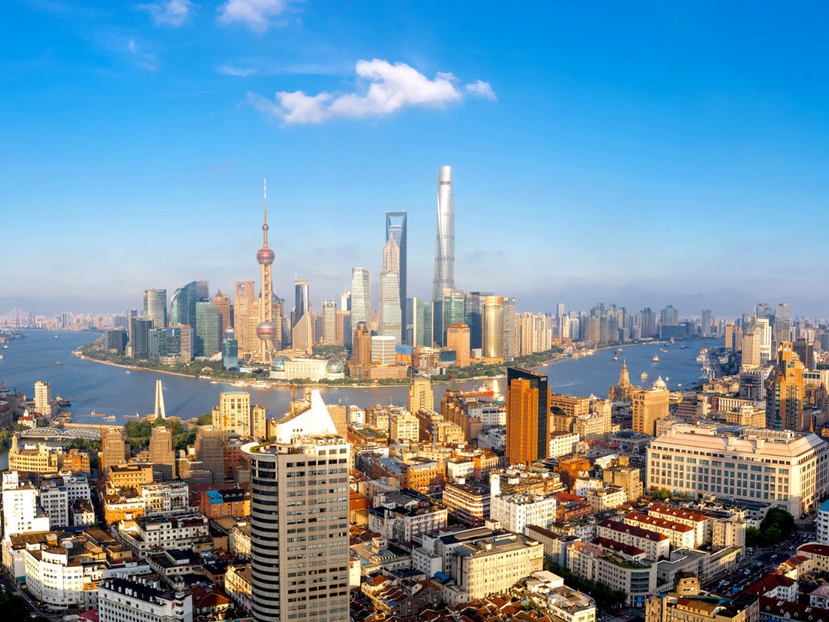Recently, the Political Bureau of the Communist Party of China (CPC) Central Committee held a meeting to analyze and study the current economic situation and make further arrangements for economic work. Since the beginning of this year, in the face of a more complex domestic and international environment, Chinese economy has posted generally stable performance, making progress while ensuring stability. New quality productive forces have reported steady development, and solid efforts have been made to guarantee people’s livelihood. Positive progress has also been achieved in preventing and defusing risks in major areas. The fundamentals of the Chinese economy, and favorable conditions such as a vast market, strong economic resilience and great potential remain unchanged.
China’s economic “stability” is mainly reflected in the overall economic landscape. The Chinese government has united and led Chinese people of all ethnic groups to overcome difficulties, intensified macroeconomic regulation, focused on deepening reform and opening up, expanded domestic demand, and optimized the economic structure. As a result, China’s economy continues to recover and improve. According to the National Bureau of Statistics (NBS), China’s gross domestic product (GDP) grew by 4.8 percent year on year in the first three quarters of the year, with a 4.6 percent increase in the third quarter. This growth, amidst a challenging external environment and ongoing domestic economic restructuring, highlights the resilience and potential of the Chinese economy.
In terms of production and supply, agricultural production remains stable, with expectations for another grain harvest this year. China’s Industrial production registered stable growth and the total value added of industrial enterprises above the designated size grew by 5.8 percent in the first three quarters of 2024. Service sector continued to recover with the total value added went up by 4.7 percent. Modern services enjoyed sound development. Regarding employment and prices, there were 9.44 million new jobs added in urban areas in the first eight months, which is an increase of 200,000 compared to the same period last year. Consumer prices rose by 0.2% year-on-year.
From the perspective of market demand, manufacturing investment increased by 9.1% year-on-year in the first eight months, which is 5.7 percentage points higher than the overall investment growth rate. Retail sales, a vital gauge of consumption, reported stellar growth in July, highlighting a broadening recovery in domestic demand amid targeted policy support. The service production index rising 4.8 percent year on year in July, with the sub-index on business expectations of the service sector coming in at 56.6, indicating strong optimism. With policy measures boosting residents’ income and increasing their willingness and ability to spend gradually kicking in, the foundation for consumer market recovery will be further consolidated. Weeks ago, China celebrated the 75th National Day, one of the most important festivals. This week-long holiday, known as the Golden Week, marked a peak in travel and consumer spending, highlighting the post-pandemic recovery trajectory and the government’s efforts to stimulate economic growth.
China’s economic “progress” is mainly reflected in structural optimization. The Chinese government took a comprehensive, objective and sober view of the current economic situation, faced the difficulties squarely and remain confident, enhanced the sense of responsibility and urgency in doing a good job in economic work. The meeting mentioned above accelerated the introduction of a package of incremental policies, which greatly enhanced market confidence and stimulated market vitality.
In terms of structural adjustments, data from the first three quarters showed that the general trend of solid progress in China’s high-quality development has not changed. Investment in high-tech industries maintained a relatively fast growth rate, the value added in equipment manufacturing and high-tech sectors grew by 7.5 percent and 9.1 percent, respectively, significantly surpassing the 5.8 percent growth rate for all designated large industrial enterprises. This shift reflects a transition toward a more efficient, technology-driven industrial model. New growth drivers are increasingly fueling economic expansion, the steady advance in high-end, smart and green technologies is expediting the formation of new quality productive forces, adding fresh impetus into the economic growth.
China’s steady economic progress is a shot in the arm for the world. As the world’s second largest economy, China’s sustained economic improvement is good news for the world. At present, global trade barrier has increased, the geopolitical situation is complicated, and the world economic recovery is weak. According to the latest forecast of the International Monetary Fund, the global economy will grow by 3.2% this year, which is lower than last year. And based on the performance of China’s economy in the first three quarters and the effect of the implementation of incremental policies, the positive factors driving China’s economy to stabilize and rebound are increasing, and the confidence in achieving the expected target of 5% GDP growth is strengthening.
Meanwhile, the expanded opening up of the Chinese market has created win-win opportunities for all countries. China has remained Africa’s largest trading partner for a 15th consecutive year, with a trade volume of 282.1 billion U.S. dollars in 2023, and China’s direct investment stock in Africa had exceeded 40 billion dollars and is expected to maintain steady growth this year, demonstrating the strong vitality and resilience of China-Africa economic and trade cooperation. Over the last quarter century, Chinese companies have helped African countries build or upgrade more than 10,000 km of railways, nearly 100,000 km of highways, roughly 1,000 bridges, almost 100 ports and 66,000 km of power transmission and distribution lines, all of which have created arteries of connectivity across the African continent. Beyond infrastructure, China is also working with Africa to drive the continent’s green transition through investments in hydropower, wind, and solar energy, and addressing key challenges in agricultural technology and food security. Over the past decade, China has set up 24 agricultural technology demonstration centers in Africa and popularized more than 300 advanced agricultural technologies, benefiting more than 1 million farmers in African countries. Meanwhile, through healthcare, education, scholarships, vocational training, and cultural exchange programs, China has contributed to the development of Africa’s human capital.
More from Africa News 24
China’s pragmatic leadership a key lesson for Lesotho and Africa
As cooperation between China and African countries including Lesotho deepens and our ties grow closer, some other countries have been hyping up the notion of “neocolonialism” regarding China’s increasing presence on the continent. However, the reality on the ground suggests a different story. African leaders have repeatedly emphasized that China’s approach respects their sovereignty and development priorities. This stands in contrast to the paternalistic and conditional aid often provided by some other countries. The truth is, China seeks to be an active partner amid global challenges due to its broad outlook on shared global prosperity. The condition for neocolonialism does not exist in China’s political system. The claims of “neocolonialism” in reference to China-Africa cooperation are highly misleading and deliberate distortions of historical facts. China has never been a colonial power. Rather, itself, like African countries, has been a victim of imperialist invasion, oppression, and exploitation. This makes China a natural ally of African countries because it understands what it means to suffer at the hands of external forces.
China and Lesotho are strategic partners and companions on the path to modernization. In recent years, China and Lesotho have made continuous progress in practical cooperation in various fields, including infrastructure, agriculture, energy, etc. China is willing to continue to work with Lesotho to take the FOCAC as an opportunity to jointly build a more meaningful and vibrant China-Lesotho community with a shared future, injecting more positive energy into the economic and social development and the well-being of the people of both countries.
H.E. Yang Xiaokun is the Ambassador of the People’s Republic of China to the Kingdom of Lesotho












